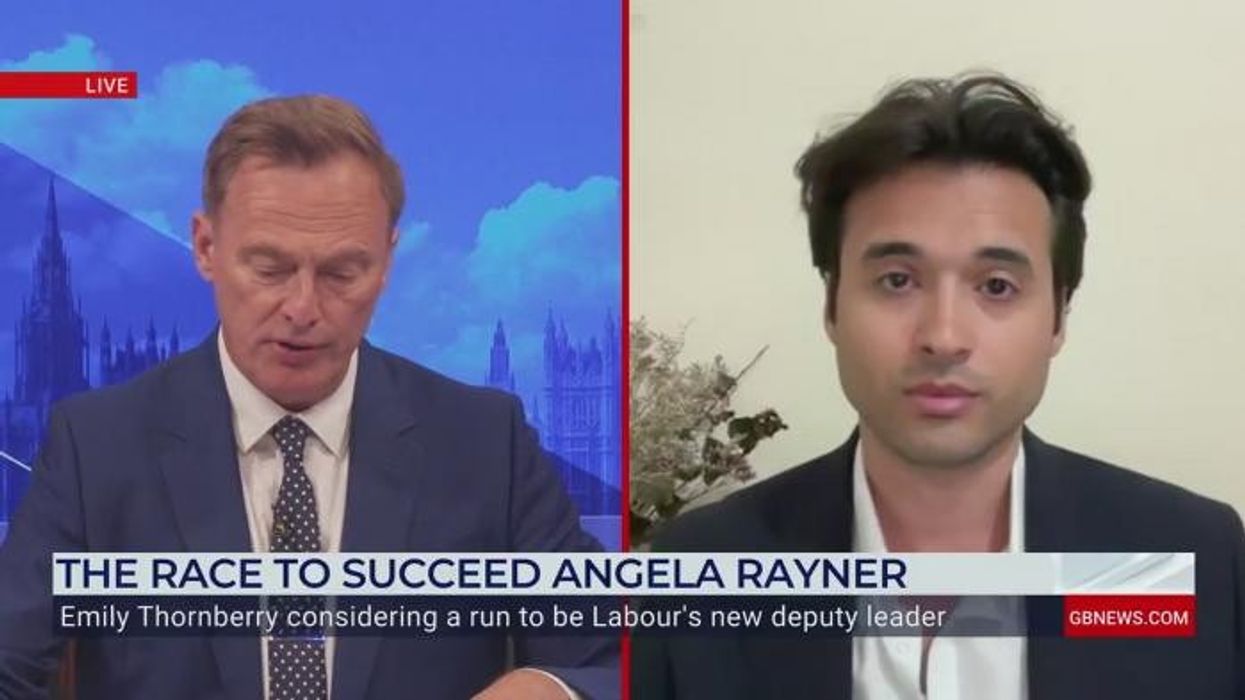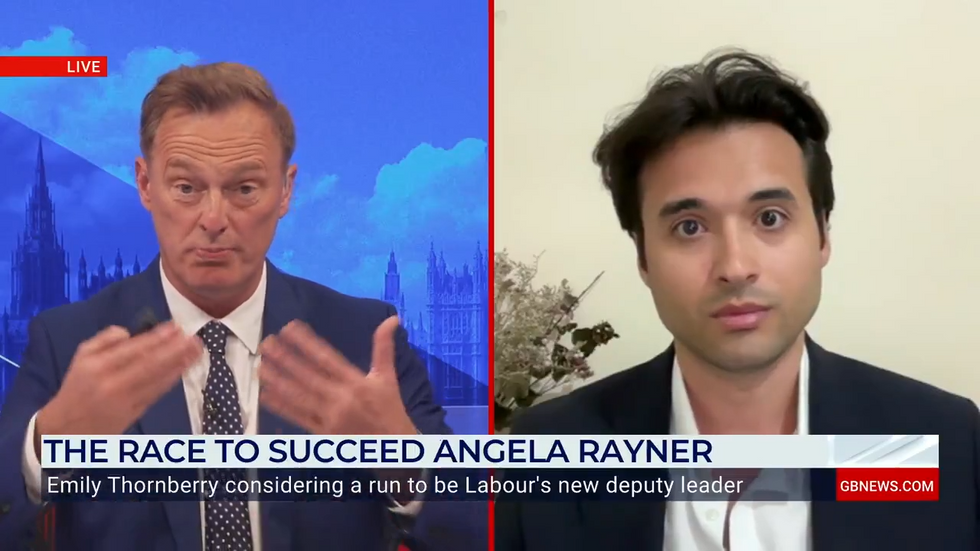‘Keir Starmer doesn’t even know what a woman is!’ Martin Daubney rows over call for Labour deputy to be a woman

‘Keir Starmer doesn’t even know what a woman is!’ Martin Daubney in row over call for Labour deputy to be a woman |
GB NEWS

Martin insisted that competence should trump gender considerations
Don't Miss
Most Read
Trending on GB News
A heated exchange erupted on GB News when presenter Martin Daubney challenged the notion that Labour's next deputy leader should be female, dismissing such considerations as "identity politics".
"Why not just hire the best person? Is the Labour Party going to be so obsessed with identity politics once again and pick the token gesture rather than the right gesture?" Martin questioned Labour Councillor Sebastian Salek during the broadcast.
The GB News star intensified his critique by claiming that Sir Keir Starmer "doesn't even know what a woman is" and describing him as "a man who thinks a woman should have a penis" in reference to previous remarks made by the Prime Minister about gender, pointedly one instance where he struggled to define what a woman is.
Martin insisted that competence should trump gender considerations, stating: "Give us the best people to run the country. We don't care what's in their trousers, we care what's between their ears."

Martin Daubney clashed with the Labour councillor
|GB NEWS / PA
Labour Councillor Sebastian Salek offered a more nuanced perspective during the discussion, suggesting that gender balance in leadership could provide valuable contrast.
"One of the contrasts with Sir Keir Starmer is, he's a man. If he was a woman, we would be looking to a next Deputy Leader who is a man," Salek explained.
LATEST DEVELOPMENTS
- 'There's no time!' Infighting erupts as Labour launches urgent bids to replace Angela Rayner
- Americans give damning verdict as Ben Leo hits Washington streets to ask about free speech in the UK
- REVEALED: How Nigel Farage could end Britain's migrant crisis within two weeks
He rejected Martin's characterisation of female appointments as tokenistic, calling it "quite insulting to the very senior, capable politicians who are in with a chance of the role".
Whilst expressing support for diversity, Mr Salek declined to endorse mandatory gender requirements. "I wouldn't go as far as saying it definitely has to be a woman," he stated, emphasising his belief that diversity strengthens the country.
"I completely agree and I hope whoever we elect is capable of this job and is smashing it out of the park," he concluded.
The controversy stems from comments made by former deputy leader Harriet Harman, who declared that Labour should select a female replacement from outside the capital for Angela Rayner.
Speaking to the BBC, Baroness Harman argued: "I think that, in terms of extending the breadth of the leadership, it probably needs to be somebody from outside London and it definitely needs to be a woman."
The former deputy to Gordon Brown and Ed Miliband emphasised the importance of choosing someone who would complement the current leader whilst expanding the party's appeal.

Martin put it to Mr Salek that Sir Keir Starmer 'doesn't even know what a woman is'
|GB NEWS
"We need somebody who is not a counterpoint to the leader, but is complementary to the leader, will broaden the reach of the leader and galvanise the party," she explained.
The party's governing body has established an accelerated timetable for selecting Rayner's successor, with the contest set to conclude on 25 October.
The National Executive Committee opened nominations on Tuesday, requiring prospective candidates to secure endorsements from a minimum of 80 MPs to participate.
Initial parliamentary hustings are scheduled for Wednesday, with hopefuls facing a Thursday deadline at 17:00 BST to meet the MP threshold, representing 20 per cent of Labour's parliamentary contingent.
WATCH: Nigel Farage reacts to Angela Rayner's resignation
Beyond parliamentary support, contenders must obtain backing from either three affiliated organisations, including two trade unions, or five per cent of constituency Labour parties.
Those clearing these hurdles will advance to a membership ballot, with the compressed schedule reflecting the unexpected nature of the vacancy and the party's desire to fill the position swiftly.
Trade union representatives are seeking a successor who mirrors Ms Rayner's profile: female, maintaining strong labour movement ties, and championing workers' rights alongside public sector investment.
Union preferences extend to geographical considerations, favouring candidates from regions beyond London and the southeast who demonstrate effective media communication skills.
The unexpected timing of Ms Rayner's exit caught union leadership unprepared, leaving them scrambling to coordinate their response to the accelerated selection process.
Initial assessments suggest unions lack the organisational readiness they might have possessed under different circumstances, potentially affecting their influence over the outcome.
The compressed timeline compounds these challenges, as the rapid succession process limits opportunities for thorough candidate evaluation and strategic positioning that typically characterise deputy leadership contests.
More From GB News










